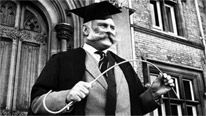Genealogy /
Help finding info about Naliborski [23]
With all due respect, why do you think Naliborski family (if it existed in Poland as such) had any coat of arms? The postfix -ski does not necessary signify any nobility. In the break-up of the feudal system in Europe, many of the Polish peasants were given names from the estate on which they worked, or from the fauna and flora around them, and carried these names with them to America. They often added a "ski" signifying a family of titled ancestry, but which in many cases was not valid.
After double checking I only found one short record in Polish sources, listed in book (1), related to name Naliborski in Poland: "Naliborski Julian, a carpenter from Warsaw, taken prisoner from the battlefield, sent to Siberia to work, died in Karnyszłow in April 1864." BTW, I do not know where Karnyszłow is.
On the other hand the name Nalborski (without "i") is not unpopular in Poland. According to Polishtoledo database, [polishtoledo.com/lastnames.htm], there are 337 Nalborski names in Poland. Another database, MoiKrewni, lists 143 people named Nalborski, in 38 districts, with 20 of them living in Tczew, former Prussia. This name does not seem to be connected with any coat of arms either. You could try following this track. There is however one major problem with it: the majority, if not all, of American Naliborski are spelt with "i".
For example. the records of baptisms at St. Michael the Archangel Catholic Church, Radom, Washington County, Illinois lists zero Nalborski names, but eight baptized Naliborski kids (1895 - 1906), with seven parents or witnesses of that name. The parish's marriage records (1875-1931) list six brides or grooms and two witnesses with Naliborski/ska name. No Nalborski either.
The story of the early Polish immigration to Wisconsin, and particularly to Portage County, published here(2) and here(3), mentions Naliborski only once (but not Nalbolrski):
And on Monday, May 4, 1891 the Polish people of the county and surrounding counties gathered at Stevens Point to celebrate the 100th anniversary of the adoption of the Polish constitution. The grand march down Main Street was headed by John Boyer, Joseph Moses
(Mozuch) and John Maslowski as "generals," and by John Borchardy, Andrew Kreiger, and E. C. Naliborski as ''marshals.''
But the story starts with explanation that those immigrants came mostly from Prussia (or more exactly from the former Polish Royal Prussia, around Gdańsk). They came almost one generation after Norwegians, Germans (from Pennsylvania), Irish, etc., so they got the rough deal with land quality and price. Most of them could not speak English, but they communicated with their neighbours in other languages - including German, or even Latin. The very first Polish immigrant to Portage County was Michael Koziczkowski, a lesser Kashubian noble - Koziczkowski coat of arms,
pl.wikipedia.org/wiki/Koziczkowski
from Kożyczkowo (today: Kartuzy County, Pomeranian Province) He initially called himself Michael Von Koziczkowski, until he realized that the titles do not work in America, and so he dropped the German's VON. Most other Polish names mentioned in that article, with few exceptions, sound like commoner names. But there are some Polish-German connections in terms of common business.
The only American Nalborski that shows up here and there in American sources is August S. Nalborski, listed here:karljanssen.com/ps02/ps02_095.htm, whom I mentioned in the previous message. He was born on Aug 18, 1861, in Golancz, (Great Poland) Poland. He and his brothers Emil and Clement were listed as butchers. On the other hand Emil and Clement Naliborski (with "i") appear in the St. Michael records, mentioned before. So there might have been some confusion regarding the spelling.
References:
(1) Pamiątka dla rodzin polskich. Cz. 1 : krótkie wiadomości biograficzne o straconych na rusztowaniach, rozstrzelanych, poległych na polu boju oraz zmarłych w więzieniach, na tułactwie i na wygnaniu syberyjskiem : 1861-1866 r., Nowolecki Aleksander, pbi.edu.pl/book_reader.php?p=40378&s=1
[Memorial for Polish families. Part 1: Brief biographical information about those hanged on the gallows, shot, killed on the battlefields, and perished in prisons and in exile in Siberia, 1861-1866, Nowolecki Aleksander]
(2)library.uwsp.edu/pcl/history/ourcounty/images/00000007.pdf
(3)rootsweb.ancestry.com/~wispags/history/ethnic-polish.htm l
 PolishForums LIVE / Archives [3]
PolishForums LIVE / Archives [3]
